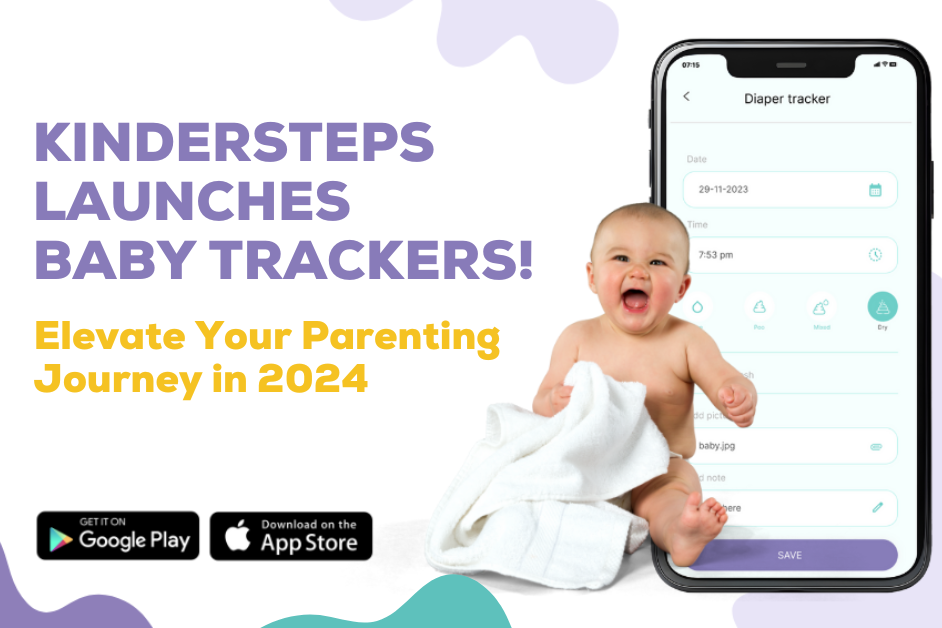Tantrums can be challenging for both parents and toddlers alike. They often seem to come out of nowhere and can be overwhelming to handle. As a parent, it's essential to understand why tantrums happen and how to effectively manage them. In this article, we will explore eight strategies that can help parents navigate through tantrum situations successfully.
Toddlers are at a stage of rapid development, both physically and emotionally. Tantrums are a natural part of this development, as they are the result of toddlers' limited ability to express their emotions and frustrations. Understanding the reasons behind tantrums can provide parents with valuable insights and help them approach these situations with empathy and effective strategies.
Why do tantrums happen to toddlers?
Tantrums happen to toddlers for various reasons. At this age, children are discovering their independence and testing boundaries. They may feel overwhelmed by their emotions and lack the vocabulary to express themselves adequately. Frustration, fatigue, hunger, or a desire for attention can also trigger tantrums. It's important for parents to recognize that tantrums are a normal part of a child's development and not a reflection of bad parenting.
Can tantrums be prevented?
While it might not be possible to prevent tantrums entirely, there are proactive steps you can take to encourage good behavior in their toddlers.
Establishing consistency in daily routine
Toddlers thrive on routine and predictability. Establishing a daily routine helps children know what to expect and reduces uncertainty, which can contribute to tantrums. Ensure your child has enough rest and quiet time by sticking to a consistent schedule for meals, naps, and bedtime.
Planning ahead to avoid triggers
Anticipating potential triggers can help parents avoid situations that may lead to tantrums. For example, plan your errands when your child is well-rested and fed. If you anticipate waiting in line, bring along a small toy or snack to keep your child occupied and content.
Allowing toddlers to make choices
Giving toddlers a sense of control can minimize frustration and tantrums. Instead of constantly saying "no," offer choices that are appropriate and allow your child to make decisions. For instance, ask them if they would like to wear the red shirt or the blue shirt, eat strawberries or bananas, or read a book or build a tower with their blocks.
Praise and positive reinforcement
Recognizing and praising your child's good behavior can be a powerful tool in encouraging positive behavior. When your child behaves well, offer extra attention, express your pride, give them a hug, or use positive affirmations. This positive reinforcement reinforces good behavior and strengthens the parent-child bond.
Avoiding triggering situations
Certain environments or stimuli can increase the likelihood of tantrums. Avoid giving your child toys or activities that are beyond their developmental capabilities, as they may become frustrated. Additionally, if your child tends to act up in specific places, such as restaurants, choose venues with quick service to minimize waiting times and potential triggers.
Eight strategies that can help manage tantrums
Handling aggressive behavior immediately
If your child displays aggressive behavior during a tantrum, it's crucial to address it promptly. Teach them that physical aggression is unacceptable by firmly and calmly stopping the behavior and explaining why it's not appropriate. Encourage alternative ways of expressing emotions, such as using words or gestures.
Refraining from yelling
Yelling or raising your voice during a tantrum can escalate the situation further. Instead, try to maintain a calm and composed demeanor. Your child takes cues from your behavior, and responding calmly can help them regulate their emotions more effectively.
Letting your child be angry
Allowing your child to experience and express their anger is important for their emotional development. Provide a safe space for them to express their emotions, and let them know that you understand their frustration. Acknowledging their feelings can help them feel heard and validated.
Picking your battles
Not every situation requires direct intervention. Sometimes, it's best to choose your battles and let your child work through minor frustrations independently. This approach teaches them problem-solving skills and builds resilience.
Using brief commands
During a tantrum, it's important to keep your instructions simple and concise. Long explanations or lectures may overwhelm your child further. Use short, clear commands that your child can understand and follow.
Distracting them
Redirecting your child's attention can be an effective technique to diffuse tantrums. Engage them in a different activity or offer an alternative option that can shift their focus away from the cause of frustration.
Giving them a hug
Physical touch, such as a comforting hug, can provide reassurance and help your child feel secure during a tantrum. Embracing them with love and warmth can help them calm down and regulate their emotions.
Helping undo frustration
After a tantrum, assist your child in resolving the issue that triggered the outburst. Help them understand and express their emotions by using age-appropriate language and problem-solving techniques. Offering support and guidance can foster emotional growth and prevent future tantrums.
Managing tantrums is a crucial aspect of parenting, and the strategies outlined in this article can help parents navigate through this challenging phase successfully. However, it's important to remember that each child is unique, and finding the most effective strategies may require patience, empathy, and consistent effort. For additional support and resources, download the Kindersteps app, a free parenting app that provides over 1500 early childhood developmental activities for children between the ages of 0-5 years. Kindersteps offers daily suggested activities and a private newsfeed to enhance your parenting journey.






.jpg?alt=media&token=166b64a9-274c-400c-95e4-baf0013e7e43)
